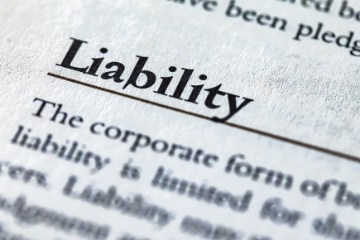
What is an NDA?
An NDA, or Non-Disclosure Agreement, is a legally binding contract that establishes a confidential relationship between parties. It ensures that sensitive information remains secure when shared for business or employment purposes, protecting trade secrets and other proprietary data from unauthorized disclosure. Our Dutch contract attorney explains the most important aspects of an NDA under Dutch law.
An NDA under Dutch law (Non-Disclosure Agreement), in Dutch “geheimhoudingsovereenkomst”, is a crucial tool in the Netherlands for protecting confidential information exchanged between parties during business transactions, partnerships, or as part of employment agreements. An NDA under Dutch law ensures that sensitive information stays private, specifying what constitutes confidential information, who is involved, and the duration of the agreement. This type of legal contract is particularly significant in industries where proprietary information, such as innovative technologies or trade secrets, is a core business asset.
Why is an NDA important under Dutch law?
Under Dutch contract law, an NDA legally binds parties to secrecy and establishes penalties for breaches. This enforceability is key to fostering trust and openness in commercial and professional relationships. It allows parties to share valuable information without fear of it being leaked to competitors or the wider public. Should a breach occur, the non-breaching party can seek specific remedies, including claiming damages and demanding the cessation of further breaches.
How can you ensure your NDA is enforceable under Dutch law?
To maximize its enforceability under Dutch contract law, an NDA should be clearly written and tailored to the specific circumstances of the parties and the information it intends to protect. Key elements include a precise definition of what is deemed confidential, the scope of the confidentiality obligation, and any exclusions from such obligations. It’s crucial to balance the legal rigor required to protect interests with the need for clarity to ensure all parties understand their obligations and rights under the agreement. For best practices, consulting with a legal expert specializing in Dutch law is highly advisable.
Understanding Dutch Law Non-Disclosure Agreements
It is essential to comprehend the fundamental aspects and how they align with stringent legal requirements for an NDA under Dutch law. In the Netherlands, an NDA must clearly define what constitutes confidential information, identify the parties bound by the agreement, and specify the terms under which the information may be used. The agreement should also detail the duration for which confidentiality must be maintained, which may extend beyond the term of the agreement itself. Please read the most important aspects here:
1. Partner Considerations
In crafting an NDA, meticulous consideration must be given to the counterparty involved. Identifying the formal contracting party, delineating information dissemination boundaries, and ensuring liability clauses are paramount.
2. Clarifying Objectives
Defining the purpose of the NDA sets the stage for its enforceability. It’s crucial to articulate the scope of information exchange and restrict its usage to specific objectives, safeguarding against misuse or unauthorized disclosure.
3. Reciprocity in Obligations in an NDA under Dutch law
While NDAs under Dutch law often depict a unilateral flow of information, reciprocal agreements are increasingly prevalent. Reciprocity ensures equitable obligations and mitigates asymmetric risks associated with one-sided agreements.
4. Definition of Confidentiality
Precise delineation of what constitutes confidential information is vital. Clear definitions minimize ambiguity, averting disputes over information classification and unauthorized disclosures.
5. Duration and Termination Policies
Determining the duration of confidentiality obligations and delineating termination procedures are pivotal. Provisions addressing post-termination obligations, including information return or destruction, fortify the NDA’s effectiveness.
6. Inclusion of Penalty Provisions
Incorporating penalty clauses in NDAs serves as a deterrent against breaches and facilitates damage recovery. These clauses augment enforceability, providing recourse in scenarios where quantifying damages proves challenging.
7. Jurisdictional Clarity
Navigating jurisdictional complexities necessitates a clear choice of law provision within the NDA. Designating applicable legal frameworks and jurisdictional authorities preemptively averts disputes.
Frequently Asked Questions
Legality of NDAs in the Netherlands
Yes, NDAs are legally binding in the Netherlands, subject to adherence to Dutch legal requirements and principles of enforceability.
Ramifications of Breach under Dutch law
Breach of an NDA may result in legal ramifications, including damages and penalty enforcement, contingent upon the terms stipulated within the agreement.
Duration of Confidentiality Obligations
Confidentiality obligations typically endure beyond the termination of discussions or information exchange, as specified within the NDA, ensuring sustained protection of confidential information.
For more insights on Dutch law NDAs or personalized legal guidance, please feel free to contact our adept team at MAAK Advocaten.







